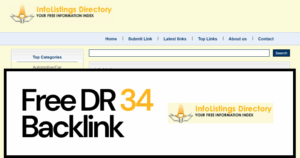Are you looking to take your content marketing to the next level? Look no further than automated SEO tools to supercharge your efforts and drive better results. In this blog, we’ll explore how you can harness the power of automated SEO to optimize your content for maximum visibility and engagement. From implementing the right keywords to crafting compelling meta descriptions, we’ll cover a range of strategies to boost your content’s search engine performance. Additionally, we’ll delve into the importance of structured data, content formatting, and link building for SEO enhancement. With a focus on mobile optimization and measuring SEO performance, we’ll equip you with the knowledge and tools to stay ahead of the curve. And of course, we’ll discuss the crucial element of creating high-quality content that resonates with your audience and drives SEO improvement. Get ready to elevate your content marketing game with the latest insights and strategies for automated SEO!
Automated SEO Tools for Content Optimization
Using automated SEO tools can significantly improve your content marketing efforts by helping you optimize your content for search engines. These tools allow you to identify relevant keywords, analyze competitor strategies, and track the performance of your content.
By automating the SEO process, these tools save time and effort while ensuring that your content is always optimized for maximum visibility. With features such as keyword research, on-page optimization, and backlink analysis, automated SEO tools empower content creators to create high-quality, discoverable content.
When choosing an automated SEO tool for your content marketing strategy, consider factors such as user interface, available features, and scalability. Look for a tool that integrates seamlessly into your workflow and provides actionable insights to enhance your content marketing efforts.
Implementing Keywords for SEO Improvement
Choosing the right keywords for your content is a crucial step in improving your SEO. It’s important to conduct thorough research to identify relevant and high-traffic keywords that are related to your business or industry. Utilizing tools like Google Keyword Planner or SEMrush can help you uncover valuable insights on what keywords are popular, what the competition looks like, and how often people are searching for them.
Strategies for integrating keywords seamlessly involve placing them strategically within your content, including in titles, headers, meta descriptions, and throughout the body of the text. However, it’s important not to overdo it – keyword stuffing can actually harm your SEO efforts. Focus on creating high-quality and valuable content first and foremost; then naturally incorporate relevant keywords where they make sense.
Measuring the effectiveness of your keyword usage is essential for refining your approach to SEO improvement. Use tools like Google Analytics or Ahrefs to track organic traffic generated by specific keywords, monitor click-through rates (CTR), and assess conversion rates tied to certain keyword phrases. By analyzing this data regularly, you can gain insight into which keywords are driving results and make informed decisions about where to focus your efforts.
Optimizing Meta Tags and Descriptions for SEO
When it comes to improving your content marketing with automated SEO, one of the most crucial aspects is optimizing meta tags and descriptions. Ensuring that your meta tags are relevant, accurate, and properly used can significantly impact the visibility of your content on search engine result pages (SERPs). It’s essential to adhere to best practices for meta tag optimization such as using relevant keywords, crafting compelling titles, and providing accurate descriptions.
Crafting compelling meta descriptions is equally important in improving SEO. A well-crafted description not only entices users to click through to your content but also signals search engines about the relevance of your page to a user’s query. Focus on creating concise yet descriptive meta descriptions that accurately represent the content on your page while incorporating targeted keywords naturally.
Additionally, utilizing meta tags effectively can also improve click-through rates by attracting users’ attention and encouraging them to visit your website or webpage. By strategically optimizing these elements for SEO, you can enhance the overall performance of your content marketing efforts and drive more organic traffic to your site.
Utilizing Structured Data for SEO Enhancement
Structured data plays a crucial role in SEO enhancement by providing search engines with valuable information about your content. By implementing structured data, you are making it easier for search engines to understand and categorize your website’s content, which can lead to better visibility and ranking in search results.
One way to utilize structured data for SEO enhancement is by incorporating rich snippets into your content. Rich snippets are the additional information that appears alongside the meta description of your webpage in search results. This could include star ratings, product prices, event dates, and more. By adding structured data markup to your content, you can increase the chances of having rich snippets displayed for your web pages.
There are several tools available that can help you add structured data markup to your content without needing advanced technical knowledge. These tools provide a user-friendly interface for generating and deploying structured data code across different types of web pages, making it easier for marketers and website owners to take advantage of this powerful SEO strategy.
Content Formatting and SEO Best Practices
Proper content formatting significantly impacts your website’s search engine optimization (SEO) ranking. By structuring your content in a way that is easy for search engines to crawl, you can improve your chances of ranking higher in search results. This includes using relevant keywords in headings, meta tags, and alt text for images.
Optimizing the structure of your content is essential for better SEO. This involves breaking up large blocks of text into smaller paragraphs and utilizing heading tags (H1-H6) to indicate the hierarchy of information on a page. Additionally, incorporating bullet points can make it easier for both users and search engines to understand the key points within your content.
When creating or updating content, always keep SEO best practices in mind. Ensure that each webpage has only one H1 tag as this is typically reserved for the main title or headline. Subheadings should utilize H2-H6 tags to create a logical flow of information throughout the page.
Link Building Strategies for SEO Enhancement
Effective link building tactics play a crucial role in enhancing the overall search engine optimization (SEO) of your content. It involves strategically placing internal and external links within your content to improve visibility and ranking on search engine results pages. By creating high-quality, relevant content and incorporating authoritative links, you can effectively boost your website’s SEO performance.
Leveraging internal links is another powerful strategy for SEO enhancement. By interlinking relevant pages within your website, you not only provide a better user experience but also signal to search engines which pages are the most important on your site. Additionally, obtaining backlinks from reputable external sources can significantly impact your SEO efforts by signaling to search engines that other websites find value in your content.
Measuring the impact of link building on SEO is essential for evaluating the effectiveness of your strategies. Utilizing tools such as Google Analytics can help track referral traffic from various sources, including links. This data provides valuable insights into which link building tactics are driving the most organic traffic to your website and allows you to refine and optimize future link building campaigns.
Mobile Optimization for SEO Improvement
mobile optimization is crucial for improving your SEO performance, as the majority of internet users now access content through mobile devices. By ensuring that your website and content are mobile-friendly, you can improve user experience and encourage higher engagement, ultimately boosting your search engine rankings.
To achieve mobile-friendly content, it’s important to follow best practices such as using responsive web design, optimizing loading speeds, and implementing readable font sizes. Additionally, consider creating separate mobile-specific content that is tailored to the needs and behaviors of mobile users.
There are various tools available for testing and optimizing your website’s mobile SEO. These tools can help you identify issues with mobile compatibility, page speed, or usability so that you can make necessary adjustments to improve your overall SEO performance across both desktop and mobile platforms.
Monitoring and Measuring SEO Performance
In order to improve your content marketing with automated SEO, it is crucial to monitor and measure the performance of your SEO efforts. This involves tracking key metrics such as organic traffic, keyword rankings, backlink profile, and conversion rates. By analyzing these metrics over time, you can identify areas for improvement and track the effectiveness of your SEO strategies.
There are various tools available for monitoring and analyzing SEO performance. Google Analytics provides valuable insights into website traffic and user behavior, while tools like semrush and Moz offer detailed data on keyword rankings, backlinks, and site audits. These tools can help you understand how changes in your content or website impact your search engine visibility, allowing you to make informed decisions about optimizing for better results.
Interpreting the data gathered from these tools is essential for making informed SEO decisions. By understanding which tactics are driving positive results and which areas need improvement, you can develop a more effective content marketing strategy. Whether it’s adjusting keyword targeting, improving on-page optimization or focusing on link building efforts – using data to guide your SEO improvements will lead to better overall performance.
Creating High-Quality Content for SEO Enhancement
To enhance your content’s visibility and impact on search engine rankings, it is essential to focus on creating high-quality, valuable, and relevant content. This can be achieved by conducting thorough research on topics of interest to your target audience and providing in-depth information that adds value. Additionally, incorporating keywords strategically within the content can further enhance its relevance to search queries.
Utilizing storytelling and visual elements within your content can also significantly improve SEO. Engaging storytelling not only captivates the audience but also increases dwell time on your website, ultimately signaling to search engines that your content is valuable. Moreover, incorporating visually appealing elements such as infographics, videos, and images can make the content more shareable across various platforms, increasing its reach and boosting its SEO performance.
Measuring the quality of your content through metrics such as bounce rate, time spent on page, and social shares can provide valuable insights into its impact on SEO. By analyzing these metrics regularly, you can identify areas for improvement and adjust your content strategy accordingly to consistently produce high-quality material that positively influences SEO.
Are you tired of spending hours manually creating and optimizing content for SEO? Say goodbye to the struggle with Abun! Our platform automates the entire process, allowing you to generate high-quality, SEO-optimized content that drives organic traffic to your website. Whether you’re a content creator or marketer, Abun is the solution you’ve been waiting for. Sign up for early access now and revolutionize your workflow. With Abun, you can finally take the hassle out of content creation and SEO optimization, and focus on what you do best.
Frequently Asked Questions
1. What is automated SEO?
Automated SEO refers to the use of software or tools to automate various aspects of search engine optimization, such as keyword research, on-page optimization, and link building.
2. How can automated SEO improve content marketing?
Automated SEO can improve content marketing by helping to identify relevant keywords, optimize content for search engines, and generate backlinks, which can increase organic traffic and improve search engine rankings.
3. What are the benefits of using automated SEO for content marketing?
The benefits of using automated SEO for content marketing include saving time and effort, improving keyword targeting, enhancing on-page optimization, and increasing the visibility and reach of your content.
4. Are there any risks or drawbacks to using automated SEO?
While automated SEO can be beneficial, there are also risks and drawbacks to consider. These may include potential penalties from search engines for using black hat SEO techniques, the risk of generating low-quality or irrelevant backlinks, and the potential for automated tools to miss important nuances or context in content optimization.
5. What are some popular automated SEO tools?
There are several popular automated SEO tools available, such as SEMrush, Moz, Ahrefs, and Yoast SEO. These tools offer features like keyword research, on-page optimization suggestions, backlink analysis, and performance tracking to help improve content marketing efforts.
TL;DR: Learn how to enhance your content marketing with automated SEO by utilizing tools for keyword optimization, meta tag and description improvement, structured data utilization, content formatting, link building strategies, mobile optimization, monitoring and measuring SEO performance, and creating high-quality content.



